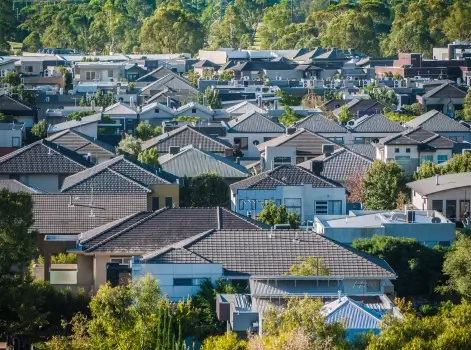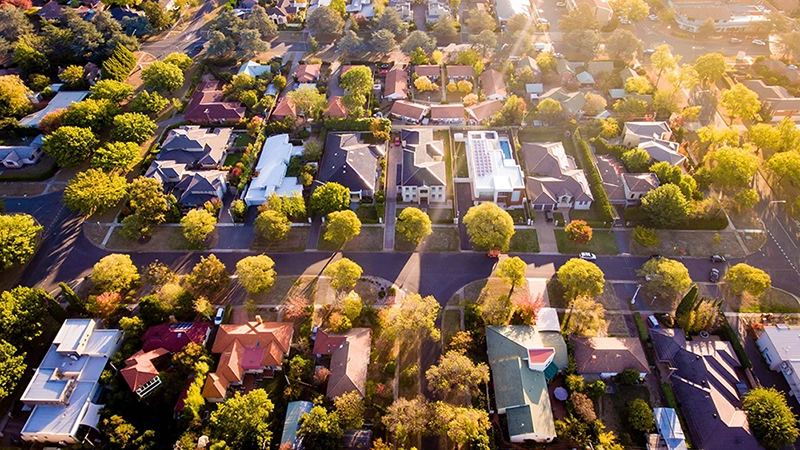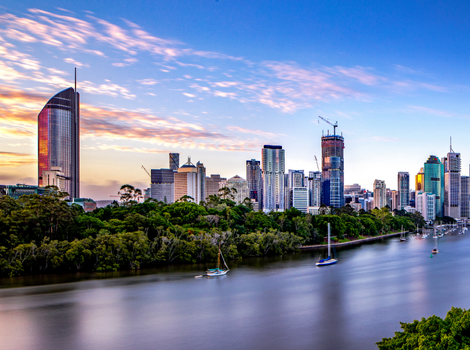Updated: 29 May, 2025
In response to the high inflation, the Reserve Bank of Australia has raised the cash rate by 4.0 percentage points since May of last year, following the latest 25-basis-point increase in June. The Treasurer and RBA governor have established a target for inflation. The goal is to have it gradually decrease to an average of 2-3 per cent over time.
The decision to raise or maintain interest rates depends on whether the inflation rate, which remains considerably elevated, shows signs of returning to the target range. In this blog, we will examine the trends and insights that indicate inflation has peaked and is now beginning to moderate in Australia.
Recent Inflation Trends In Australia
The Consumer Price Index (CPI) is the major indicator of inflation. It measures the percentage change in the price of a basket of goods and services consumed by households. By analysing the changes in the CPI over time, we can assess the inflation rate.
Quarterly CPI Indicator
| Quarter | Consumer Price Index (CPI) |
|---|---|
| March 2021 | +1.1% |
| June 2021 | +3.8% |
| September 2021 | +3% |
| December 2021 | +3.5% |
| June 2022 | +6.1% |
| September 2022 | +7.3% |
| December 2022 | +7.8% |
| March 2023 | +7.0% |
Source: ABS:RBA
Monthly CPI Indicator
The following figure indicates the CPI increase over the past 12 months.
| Month | Year-ended Growth |
|---|---|
| March 2022 | +5.7% |
| April 2022 | +5.5% |
| May 2022 | +6.1% |
| June 2022 | +6.8% |
| July 2022 | +7.1% |
| August 2022 | +7.0% |
| September 2022 | +7.2% |
| October 2022 | +7.0% |
| November 2022 | +7.4% |
| December 2022 | +8.4% |
| January 2023 | +7.4% |
| February 2023 | +6.8% |
| March 2023 | +6.3% |
| April 2023 | +6.8% |
Source: ABS
In response to rising inflation, the RBA is increasing rates to discourage borrowing and spending, which would potentially help slow down the economy and control inflation. However, it’s important to note that interest rate decisions are based on various economic indicators, not just inflation. Employment levels, economic growth and financial stability also affect the RBA’s monetary policy decisions.
Factors That Suggest Inflation Has Peaked
Moderating Consumer Price Index (CPI)
The Australian Bureau of Statistics (ABS) says there are indications that inflation has already peaked. The CPI showed a declining trend or stabilisation at a lower level after significant increases. In December 2022, the monthly CPI indicator reached its highest level of 8.4% for the year. Similarly, on an annual basis, CPI inflation reached 7.8% in the December 2022 quarter. However, the rate of increase has slowed down, as evidenced by the March 2023 quarter, whenCPI inflation fell to 7.0%. This suggests a potential easing of inflationary pressures, indicating that inflation may have peaked.
Price Pressures Have Started To Ease From The Record High
Although inflation remains high, it is encouraging to see some alleviation of price pressures. The factors contributing to the moderation in inflation include the decrease in fuel prices from the elevated levels driven by geopolitical tensions, the easing of vegetable prices following the impact of floods, and the slower growth in the cost of new dwellings. These developments contribute to a more favourable inflation outlook, considering that further efforts are needed to address persistently high inflation.
Inflation Is Moderating If We Exclude Some Volatile Price Changes
In the 12 months to April, the monthly CPI indicator in Australia rose 6.8%, compared with 6.3% in March. But Michelle Marquardt, the Head of Prices Statistics at the ABS, mentioned that when we exclude items with volatile price changes, the monthly CPI indicator for April was lower than in March. Certain items, such as automotive fuel, fruit and vegetables, and holiday travel, tend to fluctuate in price, significantly affecting the CPI. Considering these factors, it’s important to assess CPI data by excluding the items with volatile price changes to gain a more accurate understanding of the inflationary trend.
It’s Not Just Fuel Prices
Marquardt said the soaring fuel price was primarily to blame for April’s high inflation. But it is important to recognise that fuel prices alone cannot be solely blamed for inflation. During a Senate hearing prior to the June cash rate meeting, RBA Governor Philip Lowe refused to declare victory over inflation and cautioned that Australians might continue to experience further cost-of-living challenges. Lowe emphasised that the battle against inflation is ongoing and said he would refrain from declaring victory until it is truly achieved.
What Does This Mean For My Home Loan Interest Rates?
Borrowers are now facing some of the highest interest rates seen in years.
- Lowe's statement indicates that achieving the target range for inflation will require some time. Consequently, the decision to raise or maintain interest rates hinges on whether inflation is moving towards the desired range.
- As an example, the rise in the monthly CPI from 6.3% in March to 6.8% in April helped lead to an increase in cash rates by the RBA in June, as a proactive measure to tackle persistent inflation.
- There is a possibility that inflation may start to moderate based on the falling monthly CPI from record-high levels.
- If inflation begins to moderate, there is a higher chance that the RBA will halt cash rate increases and may either maintain or decrease the rates.
Consult With Experts!
It is important to stay informed about the market conditions and consult with mortgage brokers to understand the potential impact of rising inflation on home loan interest rates specific to your situation. Home Loan Experts can assist you if you are struggling to meet your monthly repayment. Call us on 1300 889 743 or complete our free online assessment form today.









